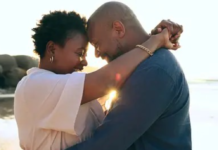They met at a golf tournament in 2009. He was a New York restaurateur. She was a nail technician. Two years later, during a spring vacation in Florida, Louis Billittier Jr. proposed to Christa Clark with a whopper of an engagement ring—a 2.97-carat diamond worth $53,000. Clark said yes. They set the date for September 15, 2012.
The couple lived together in Billittier’s Hamburg, New York, home as they prepped and planned for the wedding. Billittier paid for Clark’s cell phone and for her car and health insurance.
In fact, according to the Buffalo News, he’d been generous throughout their relationship, taking her on trips and buying her a diamond necklace and diamond-and-sapphire earrings.
But on July 1, 2012, with the wedding just two months away, Billittier broke it off. The night before, the couple had been on the phone discussing whether they should split because Clark wouldn’t sign a prenuptial agreement.
That was the last time the two ever had a discussion. In fact, when Billittier decided to call off the wedding, he sent her a text.
‘You’re doing this through a text message?’ Clark, 36, wrote back. ‘I’m not even worth a conversation?’ Billittier, 53, responded, asking Clark to return that super size ring.
She texted back a terse ‘No.’ He didn’t put up much of an argument; in his next text, he agreed that the rock would be ‘a $50,000 parting ring … enough for a down payment on a house.’
Clark moved her stuff out of his home, and Billittier reimbursed her about $9,500 for the money she and her family had already spent on the wedding. He never asked her to return the other jewelry he’d given her, but in a subsequent text to Clark, he threatened to take the engagement ring back.
Finally, in a July 31 text, he demanded once more that she return the ring. ‘You, by law, have to give it back,’ he wrote.
When she didn’t, he sued her.
Clark and Billittier were the only two people who testified in front of Justice Russell P. Buscaglia of the Supreme Court of the State of New York in November 2013. Clark maintained that after Billittier broke off the engagement, he had given her the ring as a gift.
Billittier claimed that he was ‘being sarcastic’ when he’d called it a ‘parting ring.’ He cited New York Civil Rights Law Section 80b, which states that any gifts given during the engagement period are ‘given solely in contemplation of marriage’ and should be returned if that marriage doesn’t happen.
Should a jilted fiancée be forced to return the engagement ring? You be the judge.
The Verdict
Not in this situation. Most cases like this in New York—and nationwide, for that matter—require that the parties be restored “to their pre-engagement status by returning the engagement ring to its donor,” as Buscaglia noted in his verdict. But the justice ruled that Clark could keep the ring because of Billittier’s breakup text calling it a “parting ring.” Billittier’s subsequent texts threatening to take the ring back and asking Clark to give it back reinforced that the ring had, in fact, been a gift. And according to Buscaglia’s decision on March 31, 2014, “Once a gift is given, it is irrevocable.”



![Reactions as Gborbu Wulomo ties knot with 12-year-old girl [Photos]](https://www.adomonline.com/wp-content/uploads/2024/03/Wulomo-marriage-218x150.jpeg)



